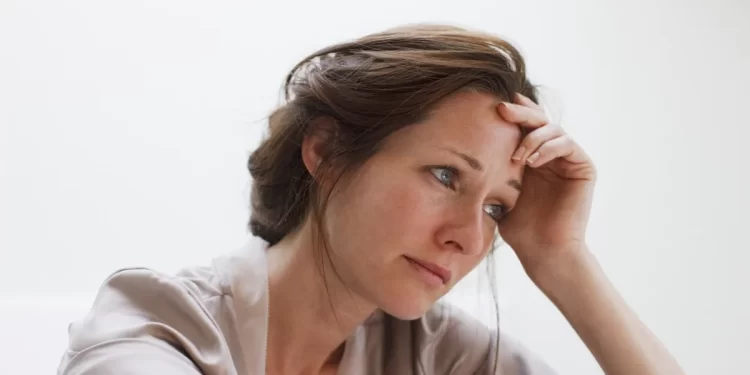Everyone feels anxious now and then due to our stressful lifestyle. Public speaking, first dates, meetings, and social gatherings can make you nervous. These feelings go away within a few hours. But if there is a more profound reason behind these feelings, it might cause an anxiety disorder.
It is a common mental health problem, and more than 18% of the population of the United States is suffering from it. Fortunately, it is treatable, and you can even see significant improvement with a few lifestyle changes. You can try some of these home remedies if you do not want to start medications immediately. High THC seeds might also help improve your conditions.
What are anxiety disorders?
Anxiety is a feeling of dread, fear, and uneasiness. It is a stress reaction, and it can help you cope with the situation. Restless feelings, rapid heartbeat, sweating, and tension are common symptoms of being anxious. Temporary anxiety stays for a few minutes to hours.
But people with anxiety disorders often get these feelings and get overwhelmed. These issues can interfere with your routine, lower your productivity and performance, and affect your relationships. It does not go away with time; it gets worse.
GAD affects due to common stress-related reasons like office, school, and finance, but it takes an extreme level. Patients can experience these overwhelming feelings regularly for more than six months.
- Panic disorder:
Patients with this disorder experience panic attacks (sudden and repeated feelings of fear without any danger). They might even stay fearful of the next panic attack. These episodes are quick and sudden and last for several minutes.
It is an extreme nervousness and overwhelming fear of being judged by other people.
It is an extreme fear of a particular place, activity, object, or situation that does not contain any real threat. Many people are phobic about spiders, cockroaches, heights, water, etc.
It causes recurring irrational thoughts in your brain that compel you to perform repeated, specific behaviors.
PTSD is a fear of living in a traumatic situation that you have experienced once.
It is a fear of being permanently separated from your family or loved ones.
It is a fear of getting sick and being anxious about your health, also known as hypochondria.
What are the symptoms of anxiety, and how do doctors diagnose it?
The symptoms of anxiety tend to change from person to person. From butterflies in your stomach and a racing heart to nightmares, painful memories, and panic attacks indicate the illness.
Anxiety attacks are common in those with disorders. It builds up slowly but gets worse as a stressful event approaches. A panic attack and anxiety attack share many similar symptoms, but they are distinct.
- Symptoms of an anxiety attack include,
- Rapid heartbeat
- Fainting or feeling dizzy
- Sweating
- Dry mouth
- Hot flashes or chills
- Distress
- Fear
- Numbness
- Tingling sensations
- Worry
Scientists have not found any particular reasons behind the mental health issue. But they suspect that a combination of factors or stressful events triggers the problem.
Diagnosing the problem is a lengthy process. Doctors might run a few physical examinations, psychological evaluations, and a self-assessment questionnaire to deduce it. Anxiety tests help them interpret the level of severity of your anxiety.
Here are the ways to treat anxiety without medications
Anti-anxiety medications are effective, but they often come with many risks. There are many dietary and lifestyle changes you can try to improve your condition.
#1 Exercise:
You might have seen people get into a boxing ring or gym to get rid of anxiousness in movies. It is probably very troubling for you to get out of bed and exercise when your mind is overdrive. But exercise will help take your mind off of the worries troubling you. It also influences the release of serotonin and boosts your mood. Staying active at least 30 minutes five days a week can significantly improve your mental health. You do not have to turn to a struggling or painful workout. You can dance to your favorite songs or strike out your preferred yoga poses to stay active.
#2 Reduce caffeine intake:
Coffee is a stimulant that enhances your energy levels, and taking caffeine when under pressure might jolt up your nervous energy and cause an anxiety attack. So, it is best to avoid coffee, an ice-cold Coke, or chocolate as much as possible, especially after the evening.
It might be upsetting that your favorite beverage can induce a rapid heartbeat and influence anxiousness. But it does not mean you have to cut it off altogether. Try to moderate the amount and time and see how you feel.
#3 Medical marijuana:
Many cannabis enthusiasts believe in the superiority of medical marijuana in improving mental health. Many cannabis strains have stimulating and calming properties. These herbs help boost your mood and ease stress and anxiety.
Hemp-derived cannabis products are legal now in the United States. So, you can ask your healthcare provider if it is safe for you to take them. We do not recommend taking them without the support of your treatment team.
#4 Take time to rest:
Without time to cool down, even machines start to act up, and you are a human. So, you need to take your eight hours to rest at night properly. Your body and brain restore and rejuvenate while you sleep, so it is necessary to get quality rest. You can use melatonin or chamomile tea if you need some help falling asleep. The better you sleep at night, the more refreshed you will be the next day.
#5 Eat proper meals:
Anxiety often comes with nausea which can make eating difficult. But if you skip meals because of these feelings, your condition will worsen. Physical health and mental health relate to each other. Your body and brain need proper nutrients to work well. So, try to maintain a balanced diet and do not skip meals.
#6 Stress relief techniques:
Some easy but effective stress relief techniques might help you ease stress and alleviate anxiety. The suitable tricks depend on the person and the type of disorder. A person who gets anxious about living alone can get a pet, or someone afraid of missing the deadline can try organizing and maintaining a routine. Muscle relaxation, breathing techniques, journaling, listening to music, and self-care activities can also release stress.
#7 Seek help:
Even when you are not ready to take medicines, talking it out is the best approach to dealing with mental health issues. You can talk to your psychologist or your friend. Going to a support group also helps many patients. Knowing that you are not alone in the journey and understanding each other’s problems provides comfort to the people.
You can try these techniques to get better. But getting help from a professional is always the best and safest way to manage these issues.

























